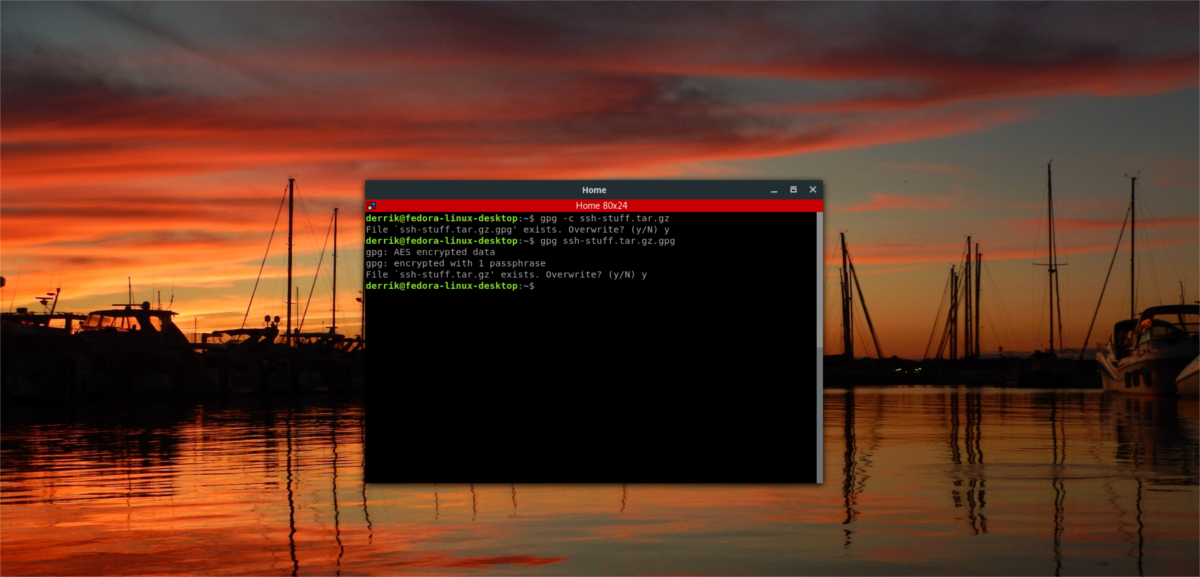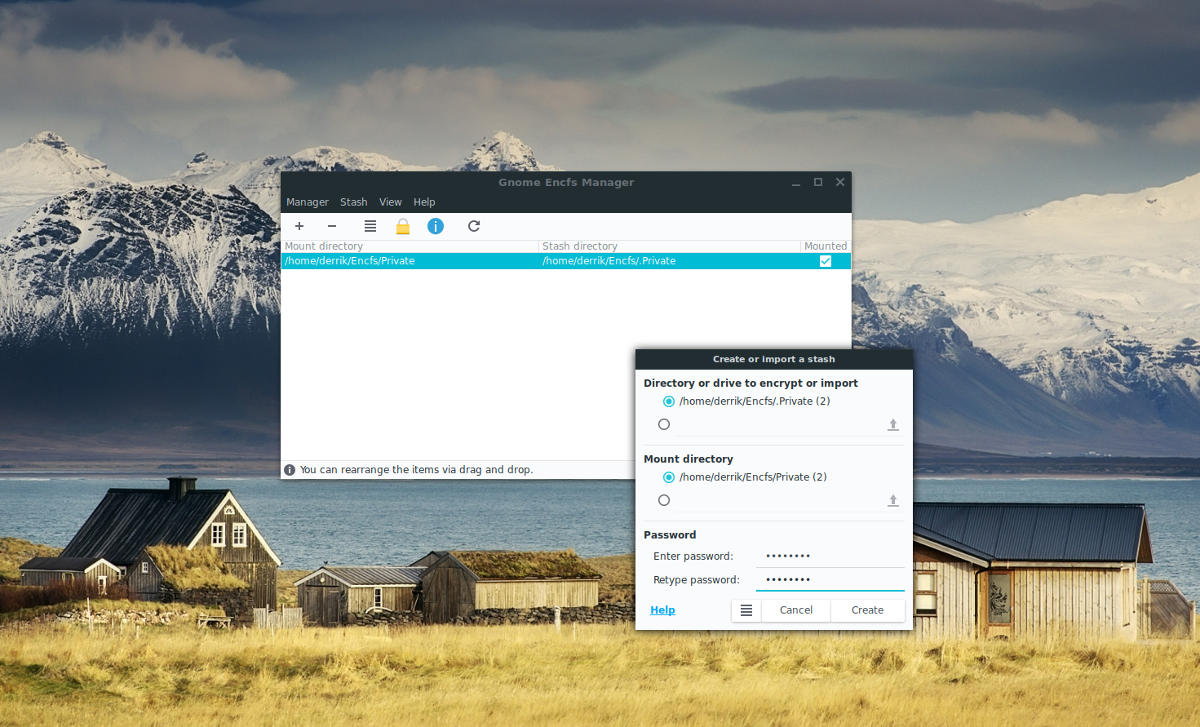5 best Linux encryption tools to install
Talk of encryption is a popular topic these days because more and more people are aware that privacy is something they need to take seriously. On Linux, many applications exist to aid users in keeping their data safe and secure.
In this list, we’ll be covering some of the best Linux encryption tools that you should be using. So, let’s get started! Here are the five best Linux encryption tools to install!
Use a VPN with Linux encryption tools
Encryption programs, such as the ones we are about to cover on this list are great at protecting your private data from prying eyes. However, even the most sophisticated applications have the potential to mess up. For this reason, it’s a great idea to use a VPN alongside your favorite Linux encryption app.
ExpressVPN takes the top spot as the best VPN reviewed by our security experts. It works well on Linux and has an excellent client for download. Better still, they offer fast download speeds with 256-bit AES encryption and perfect forward secrecy across 94 different countries. Also, they have an exclusive offer for AddictiveTips readers: 3 months free on the annual plan, a 49% discount.
1. VeraCrypt
VeraCrypt is the defacto replacement to TrueCrypt, the most popular encryption tool ever to show up on Linux. It copies all of the features almost entirely while managing to add on security fixes, and new improvements, such as the inclusion of many encryption algorithms, TrueCrypt volume support, and more.
The VeraCrypt encryption tool takes the top spot of the must-have encryption tool for Linux. Not hard to see why. It’s sophisticated, and can do everything from securing external devices to file-system partitions to entire hard drives, and much more!
Notable Features
- The team works extra hard to close all of the known security vulnerabilities of the TrueCrypt code base, ensuring that your encrypted files are safe.
- It is possible to use VeraCrypt to encrypt and hide an entire operating system.
- Supports encrypted volumes, as well as encrypted data vault “containers.”
- VeraCrypt works with security tokens and smart cards.
Download – VeraCrypt
VeraCrypt comes standard in quite a few Linux distribution software repositories, and if you want to download it, check the link here. Alternatively, the software is available for free for most Linux OSes via their official website.
2. CipherShed
CipherShed is another fork of the TrueCrypt project. It is an open source project (available on Mac, Linux, and Windows) and released in Alpha in 2014. The primary goal of the software is to maintain and offer up a similar encryption suite that TrueCrypt was known for.
It’s hard to talk about CipherShed without comparing it to VeraCrypt, but you should know that both applications are pretty similar and have equivalent functions. With that said, VeraCrypt isn’t for everyone, and if you’ve tried that and you want to try an alternative with comparable features, Ciphershed is the obvious choice.
Notable Features
- The app supports “on the fly” data locking and unlocking.
- Ciphershed makes it very easy to lock and encrypt external devices, such as USB drives and external hard drives.
- Simple to set up and use, thanks to its straightforward user interface.
Download – CipherShed
To use the CipherShed encryption tool, you must compile the code from source. Thankfully, the source code is on Github, and the build process is pretty straightforward. For more information, go here.
3. CryFS
One of my favorite Linux encryption tools is CryFS. It’s a neat little program that is built specifically to help the average user encrypt and secure data that uploads to services like Dropbox.
If you regularly sync data to the cloud, it’s insecure, and anyone who wants to can take a look at it with the right tools. For this reason alone it’s essential that you install CryFS on your Linux PC today!
Notable Features
- Encrypts the directory structure of your files, so that the encrypted data can’t be guessed, along with the file contents.
- When more data is encrypted, CryFS doesn’t re-upload changes to Dropbox. Instead, it sends small changes to save you disk space.
- Simple, easy to understand command-line structure makes it approachable to the average user.
Download – CryFS
We recently did a post on how to use CryFS to secure and encrypt your Dropbox data. If you’re interested in using the CryFS application, check out the post here, and you’ll be running it in no time!
4. GnuPG

GnuPG is a complete, free and open implementation of OpenPGP. It’s a standard for encryption on many Linux distributions and is primarily used via the command-line.
GnuPG isn’t a sophisticated tool by any means, and you won’t be able to use it to encrypt an entire hard drive or set up a lock-box. Still, if you’ve got some data lying around, or maybe a message to send, this app is a must-have on Linux.
Notable Features
- GnuPG’s encryption supports multiple algorithms, such as RSA, ECDH, ECDSA, EdDSA, Elgamal, DSA, AES, Camellia, 3DES, Twofish, SHA2, and more.
- Is cross-platform and runs on Mac, Windows and all Unix-like systems such as Linux and BSD.
- Can be used for encrypting communication, or data files.
Download – GnuPG
You probably already have the GnuPG application installed and running on your Linux PC and don’t even know it! The reason for this is that it’s one of the standard encryption tools that distributions ship by default. Still, if you don’t, you can learn more information about it at the official website here.
5. Gnome Encfs Manager

Gnome Encfs Manager is an easy to use graphical tool that lets users on the Linux desktop create and access encrypted data vaults on their systems with ease. It has several uses, including the ability to work well with services like Dropbox, NextCloud and other syncing services.
While we can’t say that the Gnome Encfs Manager is the most advanced encryption tool available on all of Linux, it’s a worthy addition to anyone’s desktop system because of how user-friendly it is.
Notable Features
- Gnome Encfs Manager can mount encrypted stashes at startup, along with unmounting all stashes automatically at log-off.
- “Stash-group” feature allows users to easily keep track of their encrypted data by using better organization.
- Has an excellent, user-friend interface and is very straight-forward.
Download – Gnome Encfs Manager
Gnome Encfs is challenging to install due to it not being provided on most Linux distribution’s software repositories. If you’re interested in using the Gnome Encfs Manager application, check out this post about it. In it, we cover how to get it working on almost every Linux distribution out there.
Conclusion
In this list, we talked about some of the best encryption tools out there for the Linux platform. If you’ve been in search of some applications that you can use to secure your data better, try these out first!
